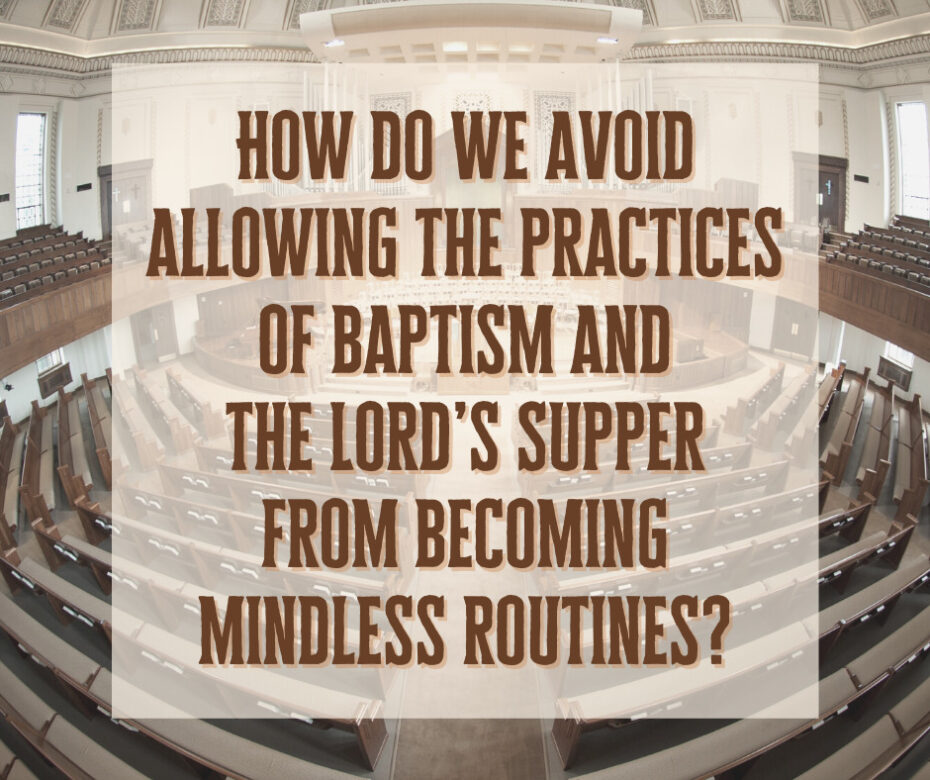For some people in Christianity, baptism and the Lord’s Supper have lost their meaning. When babies are baptized, as they are in many groups (Roman Catholic, Eastern Orthodox, Reformed, Lutheran), they are not confessing anything. The parents are promising to raise the child in the Christian faith; the one baptized has no say in the matter. But that is not what baptism was designed to be.
In most churches, the Lord’s Supper is nothing like it was designed to be. It is just the elements at the end of a service with very brief words said. Often it is only once a month or even once a quarter.
We have written elsewhere about how baptism and the Lord’s Supper are to be conducted. In this blog, I want to focus on the confessional aspects of both.
What is it that a person being baptized is to be confessing to the assembly and to God? What is it that everyone participating in the Lord’s Supper is to be confessing to each other and to the Lord?
The Lord gave the church only those two ordinances. Both ordinances center on Christ and the everlasting life that He has given us.
When a person is baptized, he should be confessing that he is embarking on a life of discipleship (Matt 28:18-20). He may or may not understand the idea of Spirit baptism and that the Spirit has raised us to walk in newness of life (Rom 6:1-6). But he should be crystal clear that he believes in Jesus Christ and that he knows that he has everlasting life that can never be lost. Whoever is conducting the baptism should make it clear that we only baptize those who know that they are saved by faith in Christ, apart from works. Baptism does not save anyone. Baptism is a visual demonstration of the promise of life. Often in baptismal services the baptizer will ask the one being baptized something like this, “Samuel, do you believe in Jesus Christ as your Lord and Savior?” In the modern climate of Lordship salvation and works salvation, such a question can be misunderstood. Therefore, Free Grace baptizers typically ask a slightly more focused question: “Samuel, do you believe that the Lord Jesus Christ has given you everlasting life that cannot be lost?” If the answer is yes, he might follow up with the question, “How do you know He has given you this permanent salvation?” The expected answer is: “Because that is what He promised [in John 3:16] to whoever believes in Him, everlasting life.”
Whether you practice the Lord’s Supper as a full meal or as simply the elements, you are to focus on Christ. Whether this is every week or once a month, the focus is to be on Jesus. That is why it is called the Lord’s Supper. He inaugurated this Supper with His disciples at the last supper. Paul said that whenever we do this, “[we] proclaim the Lord’s death till He comes” (1 Cor 11:26). As we remember His broken body (the bread) and His shed blood (the juice), we are expressing our gratitude for the free gift of everlasting life. The elements are not to be taken by those who are unsure of their eternal destiny. They are for those who know that they are secure forever by faith in Him and that He is soon coming again for them. We should never take the Lord’s Supper without gratitude or without a focus on His soon return (“till He comes”).


